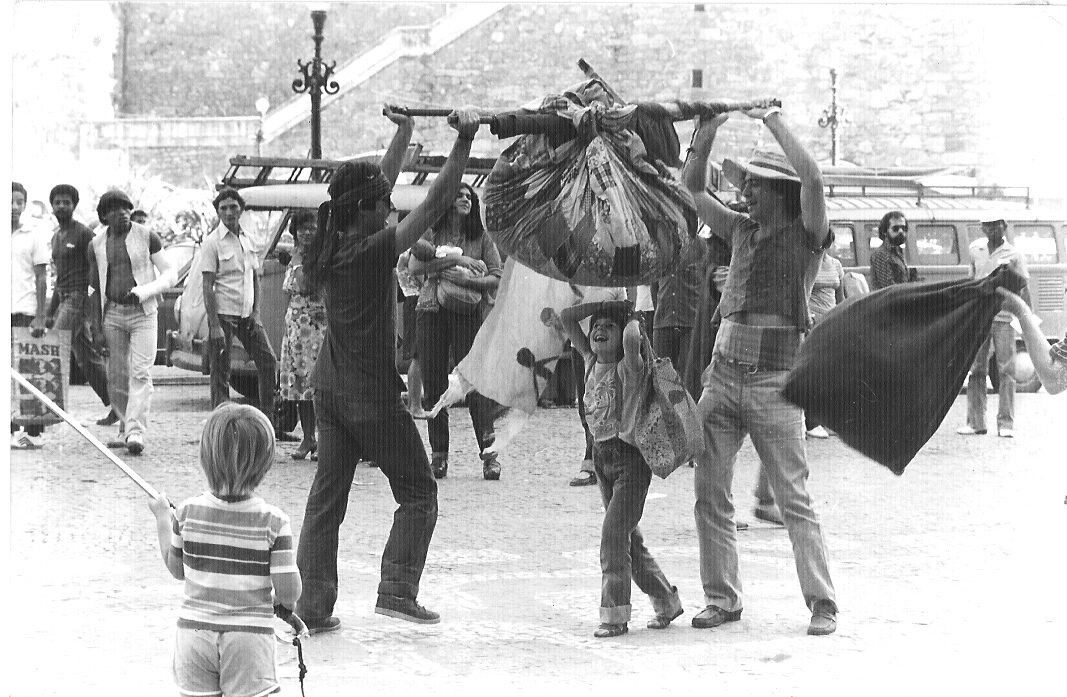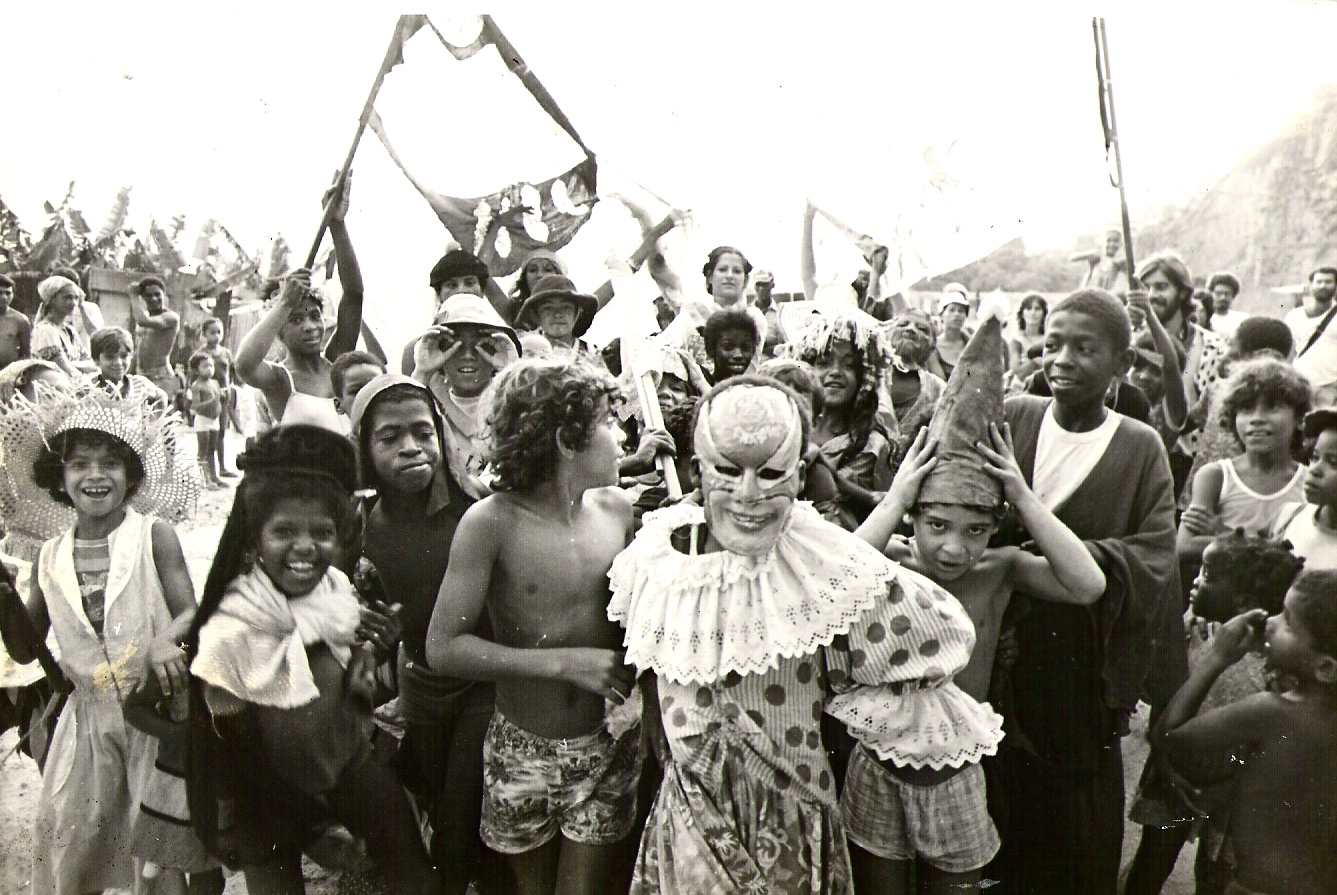By venturing into the streets—an unconventional and stimulating space that breaks away from all previously established criteria of exploration—TÁ NA RUA continued its research process, adding a new challenge: to observe the impact of this new environment on the group’s theatrical language.
Squares and streets are the city’s open spaces, special places for gathering, leisure, and community interaction; they serve as the lungs of neighborhoods. Due to their expansive structures, these spaces are particularly suited to hosting various events and performances. The combination of these characteristics, along with the social diversity of those who frequent them, transforms “the street” (streets and squares) into fertile ground for developing everything related to popular culture, playfulness, and humor, opening up space for physicality and the grotesque elements inherent in comedic expression.
Theatrical language emerges from a construction process that involves making choices, affirmations, and rejections of expressive forms. One key choice made by Tá Na Rua in developing its language was to maintain a close relationship with Carnival—not in its modern representative forms but in its deeper essence, which, in the group’s view, remains embedded in Rio de Janeiro’s popular culture. This essence includes the ability to view life’s daily dramas with humor and irony, to play with life’s cruelty and constant change, which the group captures and integrates into its language. Therefore, at no point does the group attempt to “reproduce” Carnival in its language. Instead, it expresses an internalized culture absorbed not only during Carnival festivities but also in the daily life of a city that lives in “a perpetual carnival.”
One aspect that highlights this profound connection to Carnival is the aesthetic developed, refined, and embodied by the group. This aesthetic closely resembles that of the bloco de sujo—a grassroots street Carnival parade—characterized by its rough and spontaneous nature. This can be observed in the organization of their performance spaces, the design of their costumes, and their unique approach to acting.
Furthermore, the carnivalesque language allowed the group to explore paths consistently discussed within its collective, particularly those related to authoritarianism and authority.
(…) In Carnival, there is no authority; it dissolves. The mayor hands over the keys to the city to King Momo, a different kind of authority—the authority of revelry, joy, playfulness, and freedom. The mayor relinquishes his power to make room for a new way for citizens to express themselves outside the usual social control mechanisms. Carnival is a proposal for freedom. I wanted to “carnivalize” my theater. I wanted my actors to be as free as Carnival revelers—each with their own identity and opinions, working together, growing, but without a single leader giving orders. They would manage it themselves.
(Amir Haddad – Depoimentos Cariocas. Interview with the Cultural Promotion team at the Rio de Janeiro City Archive, recorded on November 18, 2022, at Amir Haddad’s apartment in the Santa Teresa neighborhood, Rio de Janeiro).
This approach is both provoked by and strengthened through the encounter between Amir Haddad and Joãozinho Trinta—Tá Na Rua Group and the Beija-Flor Samba School of Nilópolis—during the 1989 Carnival.
Read More
For years, we fought against the established order, dissatisfied, without offering a proposal to replace it. For years, we remained silent: we spoke no language at all. When we dismantled the established order within ourselves, new possibilities began to emerge: a theater we recognized as popular took shape. Like during Carnival, when King Momo reigns, and everything established is abandoned, giving way to disorder. By stepping out into the streets, we found the other side; we turned theater upside down, like a saltimbanco—a street performer—the symbol of our group, Tá Na Rua. (Amir Haddad)
The Language of Tá Na Rua:
- A language that presents reality instead of representing it
- A language that is irreverent, free, open, and popular
- A language that reestablishes the relationship between humans and the world, life, and the sense of communion inherent to theater
- A language that embodies an ethic and an aesthetic rooted in our Brazilian origins, our culture, contributing to the construction of a new world—a world where community life and the city are integral
- A language that contains the essence of celebration, involving everyone in a shared movement that turns the world upside down, addressing utopian questions and awakening the potential for human interaction

